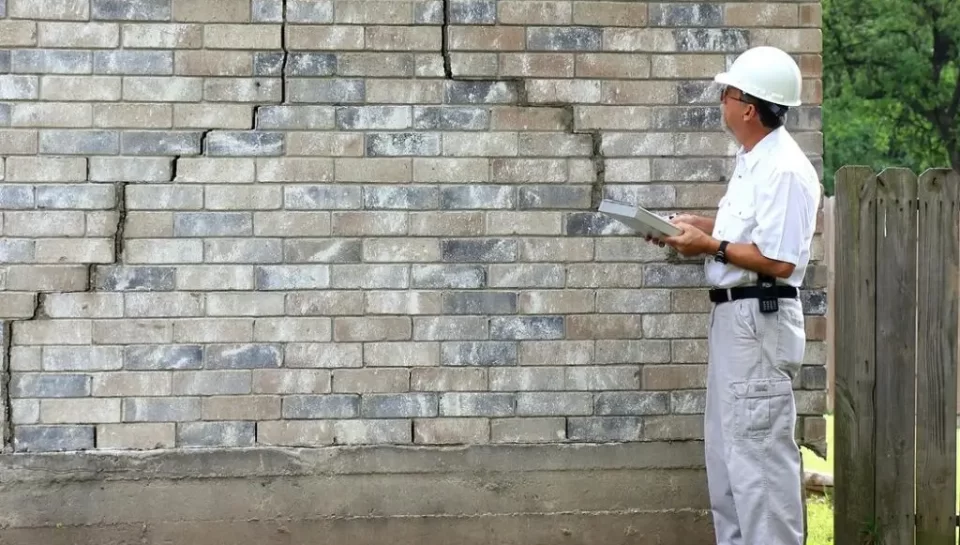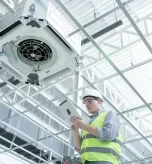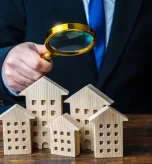When buying or leasing a commercial property, the risks are usually greater than with residential real estate. A commercial building is more than just a business place. An asset that can greatly affect your profits exists.
If you are thinking about a retail space, office building, or industrial facility, a commercial inspection is crucial. This thorough examination ensures the property is structurally sound, functional, and compliant with relevant codes and regulations. This article explores the importance of commercial inspections, their scope, and how they protect buyers, tenants, and investors.
Why Commercial Inspections are Essential?
Identify Structural and Safety Issues. A complete commercial inspection checks that the building’s structure is strong and free from major problems.
This helps ensure safety and stability. Inspectors will check the foundation, walls, and roof.
They will look for cracks, shifting, water damage, or signs of settling. These issues may show structural problems. If left unchecked, they can be costly to repair and may pose a safety risk to tenants, employees, and visitors.
Additionally, the inspection will identify any fire hazards, unsafe electrical systems, or inadequate exits that could create risks during emergencies. Ensuring the property meets safety codes is crucial. This is especially true in commercial places with many people or dangerous materials.
Check the condition of key systems
In a commercial property, these systems are crucial for daily operations. These include plumbing, heating, ventilation, and air conditioning (HVAC).
Commercial inspections evaluate the functionality and condition of these systems to ensure they are operating efficiently. Broken HVAC systems can create uncomfortable workplaces and increase energy bills, and plumbing issues can cause water damage or contamination.
A commercial inspection shows the property’s condition, which helps tenants decide before signing a long-term lease. This is particularly important if the tenant plans to make modifications or upgrades to the space.
The Commercial Inspection Process
The commercial inspection process typically involves several key steps:
1. Initial Consultation:
The inspector will meet with the buyer, investor, or tenant to discuss their concerns and goals for the inspection. This helps tailor the inspection to address any particular areas of interest.
2. Walkthrough:
The inspector conducts a thorough walkthrough of the property, examining the exterior and interior, systems, and components. They will document any issues, take photos, and note areas that may need further investigation.
3. Evaluation of Key Systems:
The inspector will assess the condition of the property’s plumbing, electrical, HVAC, and other major systems. This involves testing equipment, inspecting mechanical systems, and looking for any signs of wear or damage.
4. Report:
After the inspection, the inspector gives a detailed report. This report includes their findings, any issues, and suggestions for repairs. It also has estimated costs for fixing the problems. This report is essential for making informed decisions about the property.
Key Areas of Focus in a Commercial Inspection
· Foundation and Structural Integrity: Cracks, settlements, or signs of shifting could indicate underlying structural issues.
· Roofing: Inspecting for leaks, damage, and wear that could lead to water infiltration and costly repairs.
· Plumbing and HVAC Systems: Assessing for leaks, corrosion, or outdated components that need repair or replacement.
· Electrical Systems: Ensuring that the building meets modern safety standards and can handle the electrical load of commercial operations.
· Fire Safety: Verifying that fire alarms, sprinklers, and emergency exits are up to code.
· Environmental Concerns: Identifying hazardous materials like lead, asbestos, or mold that may require costly remediation.
Conclusion
A commercial inspection is a vital tool for anyone considering purchasing or leasing a commercial property. It makes sure the building is safe and works well. It also gives important information about its long-term health.
A commercial inspection can help buyers, tenants, and investors. It can avoid unexpected costs and ensure compliance with regulations. This ultimately protects your investment.
By dealing with issues early, you can make better decisions. This helps you move forward confidently with your property purchase or lease.





